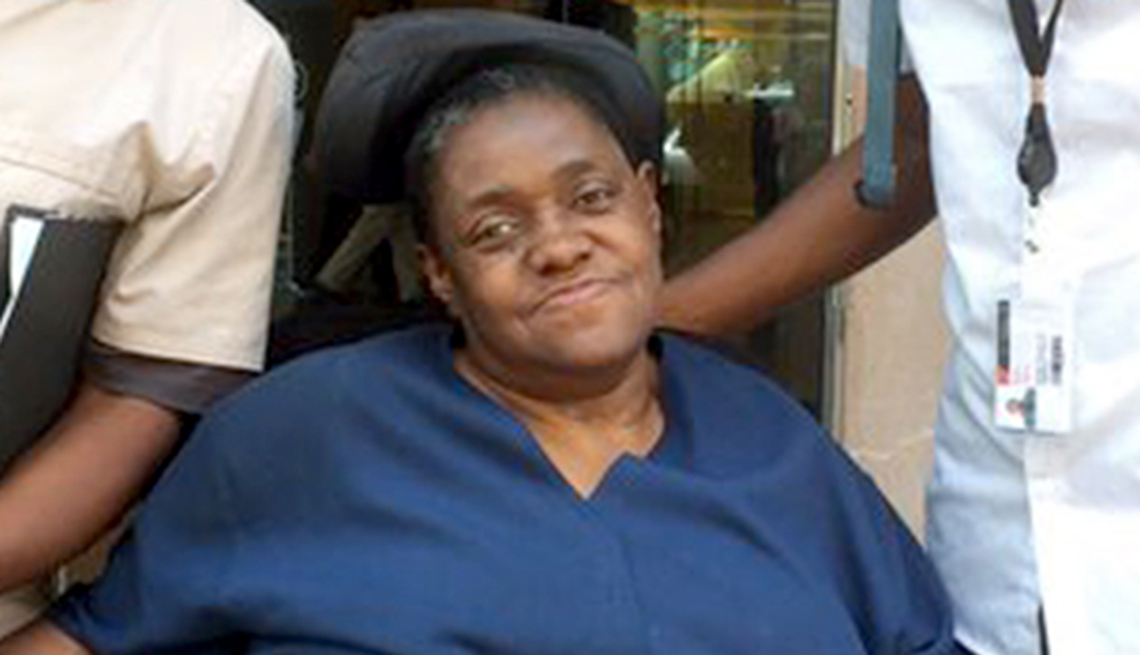
Disabled adult wins right to independent living
- Select a language for the TTS:
- UK English Female
- UK English Male
- US English Female
- US English Male
- Australian Female
- Australian Male
- Language selected: (auto detect) - EN
Play all audios:

Vietress Bacon, 60, doesn’t remember the accident that left her with long-term disabilities. But there’s a time later in her life that she’d willingly forget, if only she could. One morning
when Vietress was just 4 years old, she was the victim of a hit-and-run driver in her Washington, DC, neighborhood. “I was walking out the house and was following my sister to school. My
sister made it. I didn’t.” The impact sent Vietress flying into the air, leaving her with crippling injuries and brain damage. The date was April 5, 1968, the day after Martin Luther King
Jr. was assassinated. Vietress spent two years in what was then called a convalescent home. Her mother was a constant presence, and Vietress gives her all the credit for helping her learn
to walk and talk again and for helping her recover her memory. Years later, after working full time in the restaurant business, she ended up in a wheelchair after knee replacement surgery.
She was living in a third-floor walk-up apartment and the landlord couldn’t get her one on the ground floor — so she found herself looking for somewhere to live. That’s when she got pointed
in what she feels was exactly the wrong direction. In the hospital, a “social worker told me I could get into this nursing home and they’d take care of me,” Vietress remembers. She thought
she had no other choice. It turned out care was very much in short supply there. Asked what was bad about her time in the nursing facility, Vietress says, “Everything.” What distressed her
the most was the lack of compassion among the staff. “They seemed to be taking things out on us.” In 2010, AARP Foundation attorneys filed suit against the District of Columbia on behalf of
Vietress and some 1,100 nursing facility residents like her who were being denied their right to live in community settings with appropriate support rather than an institution even though
they were eligible to do so. Vietress was a plaintiff in the case, _Ivy Brown v. District of Columbia, _which a federal court ruled on late last year, finding that DC had violated the rights
of DC residents with disabilities under the Americans with Disabilities Act (ADA). Vietress was one of a few early beneficiaries of the case. With the help of AARP Foundation Litigation’s
co-counsel, Disability Rights DC at University Legal Services,she was able to be moved into a subsidized apartment of her own a few years ago, so she could cook for herself, get help with
some daily chores, and receive regular visits from family members. “It took a while, but God is good,” says Vietress, heaping praise as well on the attorneys who helped her. “I just wish
that other people could get out.” AARP Foundation attorneys work every day to help older people like Vietress, whether it’s fighting to protect them from abuse and neglect or age
discrimination in the workplace and housing — or to defend their right to live in settings they choose. Learn more about AARP FOUNDATION LITIGATION. _READ MORE STORIES__ about how our
programs have helped people find hope, and about the volunteers who give so much of themselves to help others._
